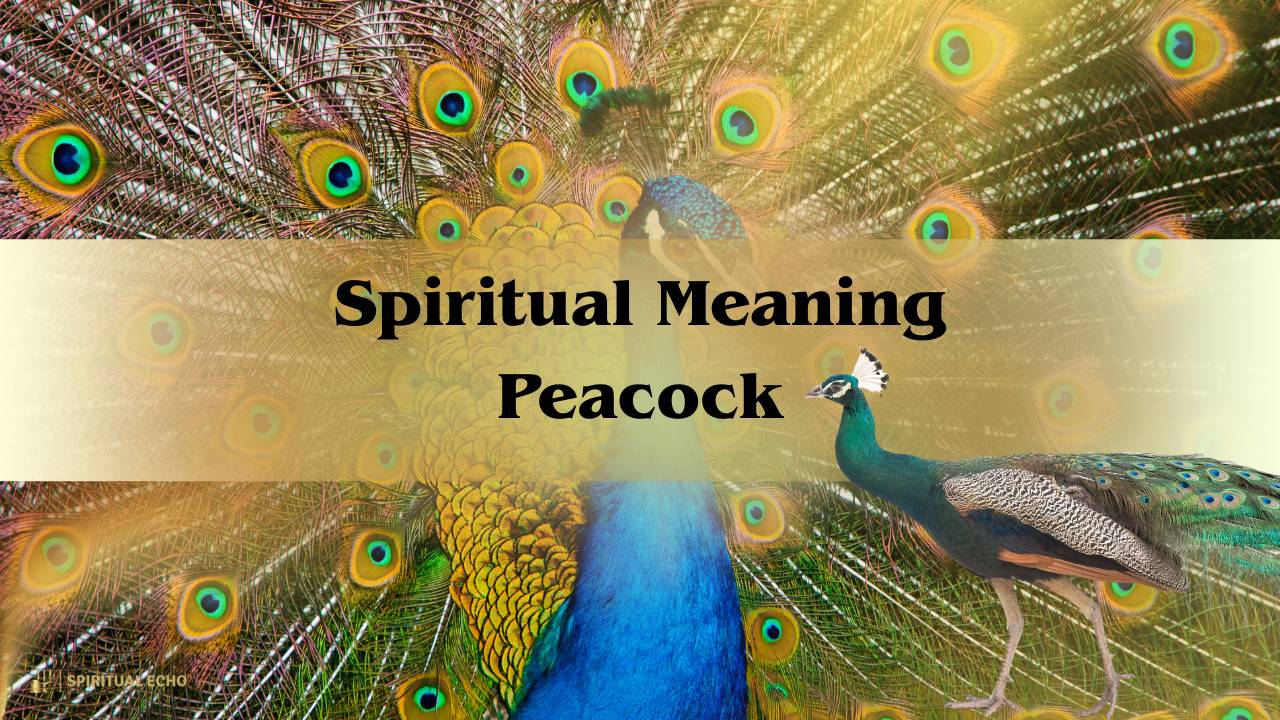Spiritual wellness refers to the overall well-being of a person’s inner self, emphasizing the connection between mind, body, and spirit.
It involves finding a sense of purpose and meaning in life, cultivating positive values, and nurturing a deep connection with oneself and others.
Spiritual wellness meaning is not necessarily tied to a specific religious belief but rather focuses on personal growth, self-reflection, and the pursuit of inner peace.
Individuals can enhance their spiritual wellness through practices such as meditation, gratitude, and engaging in activities that bring a sense of fulfillment and joy.
Spiritual wellness contributes to a balanced and harmonious life, promoting a sense of purpose and contentment.
What is the meaning of spiritual wellness? Spiritual wellness is all about feeling good inside and finding a deeper purpose in life. It is about having a healthy connection between your mind, body, and spirit. It is about understanding yourself better and finding peace within. When you focus on spiritual wellness, you explore your values and build strong connections with yourself and others.
- Brief Description Of Spiritual Wellness Meaning
- Why Is Spiritual Wellness Important?
- How To Improve Spiritual Wellness?
- Spiritual Well-Being Definition Psychology
- Understanding The Concept Of Spiritual Wellness
- The Importance Of Spiritual Wellness In Overall Well-Being
- Exploring Different Spiritual Practices And Beliefs
- Finding Meaning And Purpose In Life Through Spirituality
- Connecting With Something Greater Than Oneself
- How Ho Cultivate Spiritual Wellness In Daily Life
- Balancing Spirituality With Other Aspects Of Life
- The Role Of Community And Support In Spiritual Wellness
- Nurturing A Sense Of Gratitude And Appreciation In Spirituality
- Overcoming Challenges And Setbacks On The Spiritual Journey
- FAQ About Spiritual Wellness Meaning
- Final Thought 💭
Brief Description Of Spiritual Wellness Meaning
Engaging in spiritual wellness involves discovering a sense of purpose that goes beyond the surface of daily routines. It is like finding the things that truly matter to you and aligning your actions with those values.
Spiritual wellness meaning could include spending time in nature, connecting with loved ones, or pursuing activities like yoga that bring you joy and satisfaction.
Spiritual wellness is a personal journey that encourages self-discovery and growth, allowing you to navigate life’s challenges with a deeper sense of resilience and inner strength.
It is not about following a set of rules but rather about creating a meaningful and fulfilling life that resonates with your own beliefs and aspirations.
Spiritual wellness is a holistic approach to well-being that encompasses the core of who you are and how you relate to the world around you.
Spiritual Well Being Meaning
Cultivating spiritual well-being involves holding a sense of harmony within yourself and the earth around you.
Spiritual well being meaning is about recognizing the things that give your life meaning and purpose, whether that’s through personal relationships, nature, creativity, or a higher power.
This journey is unique to each person, and there is no one-size-fits-all approach. It is more about finding what resonates with you on a deep, personal level.
When you prioritize your spiritual well-being, you are better equipped to navigate life’s ups and downs, finding resilience in the face of challenges.
Spiritual well-being contributes to an overall sense of balance, satisfaction, and a richer experience of life. It is an ongoing process of self-discovery and connection, promoting a fulfilling and meaningful existence.

Why Is Spiritual Wellness Important?
Spiritual wellness is crucial because it plays a big part in how we feel about ourselves and our lives. It is like taking care of our inner self, finding meaning and purpose beyond our daily routines.
When we focus on spiritual wellness, we connect with our values, build strong relationships, and discover a sense of peace within. This helps us navigate through challenges with more resilience and strength.
Why is spiritual wellness important, spiritual wellness is not just about religious beliefs, it is about understanding who we are on a deeper level. It adds balance and fulfillment to our lives.
Making us more content and better equipped to handle the ups and downs that come our way. In simple terms, prioritizing spiritual wellness contributes to a happier and more meaningful existence.
Benefits Of Spiritual Wellness
The benefits of spiritual wellness bring a bunch of good things to our lives. First off, it helps us find a deeper purpose and meaning, making our daily experiences more fulfilling.
When we focus on our spiritual wellness, it also improves our mental and emotional health, reducing stress and increasing our resilience in tough times.
Building strong connections with others is another perk – it enhances our relationships and creates a sense of community. Plus, practicing spiritual wellness often involves activities like meditation or gratitude.
Which can lead to a calmer mind and a more positive outlook. The benefits include a happier, more balanced life where we feel more connected to ourselves and the world around us.
Spiritual Wellness Activities
Engaging in spiritual wellness activities involves doing things that nurture your inner self and bring a sense of peace. Simple practices like meditation, where you focus your mind and relax, can be really beneficial.
Taking quiet moments for self-reflection or journaling helps you understand your thoughts and feelings better. Expressing gratitude for the positive aspects of your life is another activity that promotes spiritual wellness.
Spending time in nature, connecting with the outdoors, or even participating in activities that bring you joy and fulfillment contribute to your overall wellness.
These activities do not have to be complicated, they are about finding what resonates with you and makes you feel more connected to your inner self and the world around you.

How To Improve Spiritual Wellness?
Improving spiritual wellness involves simple steps that can make a big difference in how you feel. First off, take some time for yourself. Whether through meditation, prayer, or quiet reflection, find a moment to center your thoughts.
Exploring your values and what matters most to you helps in understanding your inner self. Building positive connections with others, be it through supportive relationships or engaging in community activities, is also crucial.
Doing things you love and that bring you joy contributes to your spiritual wellness. Practicing gratitude by acknowledging the good things in your life can create a positive mindset.
It is about finding what works for you and incorporating these small but meaningful practices into your daily routine, gradually enhancing your overall spiritual wellness.

Spiritual Wellness Examples
Examples of spiritual wellness activities are diverse and can be tailored to suit individual preferences. One common example is meditation, where you focus your mind to promote inner calm and clarity.
Engaging in self-reflection, whether through journaling or quiet contemplation, is another practice that shows spiritual wellness.
Spending time in nature, and appreciating the beauty around you, can also contribute to a sense of connection and peace.
Participating in community or religious gatherings, if that aligns with your beliefs, is an example of how social connections can enhance spiritual wellness.
Activities like practicing gratitude or volunteering to help others can positively impact your spiritual wellness.
The key is to explore different examples and find what resonates with you, creating a personalized approach to enhance your spiritual wellness.
Spiritual Well-Being Definition Psychology
In psychology, spiritual well-being refers to a person’s overall sense of contentment and harmony with their inner self, values, and the world around them.
It goes beyond religious beliefs and involves a deep understanding of one’s purpose and meaning in life. Exploring the emotional and mental connections to pneumonia can further reveal how spiritual and psychological states influence physical health.
Individuals with strong spiritual wellbeing often experience greater emotional resilience, improved mental health, and a positive outlook on life.
This aspect of psychology recognizes the importance of connecting with one’s values, showing personal growth, and maintaining a sense of inner peace.
Practices such as meditation, reflection, and engaging in activities that bring joy and fulfillment are commonly associated with promoting spiritual well-being in the field of psychology.
Understanding The Concept Of Spiritual Wellness
Understanding the concept of spiritual wellness involves recognizing the connection between your inner self and the world around you. It is about finding a deeper meaning and purpose in life, beyond just the everyday routines.
Spiritual wellness is not necessarily tied to a specific religion rather, it is a personal journey of self-discovery, growth, and inner peace.
When you focus on spiritual wellness, you explore your values, build positive relationships, and engage in activities that bring joy and fulfillment.
It is like taking care of your mental and emotional wellness by connecting with what truly matters to you. Whether through meditation, gratitude, or simply spending time in nature, spiritual wellness is about creating a balanced and harmonious life that aligns with your own beliefs and aspirations.

The Importance Of Spiritual Wellness In Overall Well-Being
The importance of spiritual wellness in overall well-being is like giving your inner self a big, warm hug. It is about feeling good not just physically, but also emotionally and mentally.
When you pay attention to your spiritual wellness, you are diving into the deeper meaning of life, finding purpose, and connecting with your values.
This is not only about religious beliefs, it is more about understanding yourself and growing as a person. Spiritual wellness brings balance, making you more resilient in facing life’s challenges.
It is like having an anchor that keeps you steady when things get tough. Whether it is through meditation, self-reflection, or simply doing things that make you happy, nurturing your spiritual wellness adds a meaningful and fulfilling layer to your overall well-being.

Exploring Different Spiritual Practices And Beliefs
Exploring different spiritual practices and beliefs is like taking a journey to understand the diverse ways people find meaning in life. It involves looking into various ways individuals connect with their inner selves and the world around them.
Some may find solace in meditation, a practice that promotes inner peace and mindfulness. Others may hold religious beliefs, finding guidance and purpose through their faith.
There are also those who connect spiritually by spending time in nature, appreciating its beauty and serenity. Exploring these practices is not about finding a one-size-fits-all solution.
It is more about discovering what resonates with you personally. It is like trying on different hats to see which one fits comfortably.
By being open to various spiritual practices and beliefs, you can find the path that brings you a sense of fulfillment and connection.
Finding Meaning And Purpose In Life Through Spirituality

Finding meaning and purpose in life through spirituality is like discovering a roadmap that guides you to a more fulfilling and satisfying journey. It involves connecting with your inner self and understanding what truly matters to you.
Whether through religious beliefs, personal values, or a deeper sense of connection with the universe, spirituality provides a framework for exploring the bigger questions in life.
This journey is not about following a rigid set of rules but rather about self-discovery and personal growth. When you hold spirituality, you are giving yourself the opportunity to navigate life with a clearer sense of direction, resilience in the face of challenges, and a feeling of contentment.
It is like uncovering the deeper layers of your existence and finding a purpose that resonates with your heart and soul.
Connecting With Something Greater Than Oneself
Connecting with something greater than oneself is like feeling a part of a vast and meaningful tapestry of existence. It is about recognizing that there’s more to life than just our individual experiences.
This connection can take various forms, whether through nature, community, spirituality, or a higher power. It is a sense of being intertwined with a larger whole, finding purpose and significance beyond our personal boundaries.
When we connect with something greater, we experience a deep sense of awe, gratitude, and humility. It is like tapping into a source of inspiration and guidance that goes beyond our individual understanding.
This connection can bring a sense of meaning and belonging, reminding us that we are part of a much grander story in the universe.

How Ho Cultivate Spiritual Wellness In Daily Life
Cultivating spiritual wellness meaning in daily life involves weaving simple practices into your routine to nourish your inner self. Start by setting aside a few moments for quiet reflection or meditation.
This allows you to center your thoughts and find a sense of peace. Activities that bring you joy and fulfillment, whether it is spending time in nature, engaging in a hobby, or connecting with loved ones.
Practicing gratitude by acknowledging the positive aspects of your day is another way to show spiritual wellness. Be open to exploring your values and beliefs, and understanding what truly matters to you.
This journey is personal, so there’s no one-size-fits-all approach. The key is to incorporate small, meaningful practices into your daily life, gradually enhancing your spiritual wellness and creating a sense of balance and harmony.
Balancing Spirituality With Other Aspects Of Life

Balancing spirituality with other aspects of life is like keeping all the important parts of yourself in harmony. It is about finding a middle ground between your inner world and the external demands of everyday life.
This balance involves integrating spiritual practices into your routine without neglecting your responsibilities.
Whether it is through meditation, prayer, or moments of reflection, you are nurturing your inner self while still engaging with work, relationships, and daily tasks.
Striking this balance allows you to stay connected with your values and beliefs, promoting a sense of peace and purpose.
It is like having a well-rounded approach to life, where your spiritual wellness complements and enriches your overall experience, making you more resilient and content.

The Role Of Community And Support In Spiritual Wellness
The role of community and support in spiritual wellness is like having a comforting safety net that enhances your wellness journey. Being part of a community provides a sense of belonging and shared values, creating a supportive environment.
Connecting with others who share similar spiritual interests or goals can offer encouragement and understanding.
Whether it is through religious gatherings, group meditation, or simply having meaningful conversations, communal experiences contribute to a deeper sense of connection.
Supportive relationships provide a space for sharing insights, challenges, and growth, making the spiritual journey more enriching.
The communal and supportive aspects of spiritual wellness create a nurturing space where individuals can thrive, learn, and find strength in unity.

Nurturing A Sense Of Gratitude And Appreciation In Spirituality
Nurturing a sense of gratitude and appreciation in spirituality is like cultivating a garden of positive feelings within yourself. It involves acknowledging and being thankful for the good things in your life, both big and small.
Gratitude is like a heartwarming practice that can be incorporated into your spiritual journey. It’s about focusing on the positive aspects, expressing thanks for moments of joy, and recognizing the beauty around you.
This practice can be as simple as reflecting on things you are grateful for each day. By nurturing gratitude in spirituality, you are showing a positive mindset, deepening your connection with the present moment, and enhancing the overall richness of your spiritual experience.

Mindfulness And Meditation As Tools For Spiritual Growth
Mindfulness and meditation act as powerful tools for spiritual growth, functioning like a pair of guiding lights on your inner journey.
Mindfulness involves staying fully present in the current moment and cultivating awareness of your thoughts and feelings.
It is like being in tune with yourself. Meditation, on the other hand, is a focused practice that promotes mental clarity and inner peace.
By incorporating these tools into your spiritual routine, you create a space for self-reflection, relaxation, and heightened consciousness.
Whether through simple breathing exercises or more structured meditation sessions, these practices facilitate a deeper connection with your inner self and the spiritual dimensions of life.
It is like giving your mind a refreshing and rejuvenating spa treatment, showing spiritual growth, and enhancing your overall wellness.
Overcoming Challenges And Setbacks On The Spiritual Journey
Overcoming challenges and setbacks on the spiritual journey is like navigating through rough terrain with resilience and determination. Just as life has its ups and downs, the spiritual path may encounter obstacles.
It is important to view these challenges not as roadblocks but as opportunities for growth. It involves staying connected with your inner self, adapting to change, and learning from difficult experiences.
Seeking support from a community or drawing strength from your spiritual practices can be like a guiding compass during tough times.
Holding setbacks as part of the journey allows for greater self-discovery and a deepening of spiritual understanding.
It is like turning stumbling blocks into stepping stones, transforming challenges into valuable lessons that contribute to the richness of your spiritual journey.


FAQ About Spiritual Wellness Meaning
What Is The Definition Of Spiritual Wellness?
Spiritual wellness means feeling good inside by connecting your mind, body, and spirit. It’s about finding purpose, values, and peace in life, not necessarily tied to religion. Through practices like meditation and gratitude, it promotes personal growth and a balanced, fulfilling life. It’s about understanding yourself better and finding contentment.
What Is An Example Of Someone With Spiritual Wellness?
An example of someone with spiritual wellness is a person who feels connected to their inner self, values personal growth and finds purpose in life. They may practice activities like meditation, reflection, or gratitude, fostering a sense of balance, resilience, and contentment in their daily experiences.
What Is Your Spiritual Wellbeing?
Your spiritual wellbeing is about feeling good on the inside by connecting with your values and finding meaning in life. It’s a personal journey, not necessarily tied to religion, involving practices like meditation and gratitude. It contributes to a balanced, fulfilling life, where you understand yourself better and find contentment.
What Are The 3 Types Of Spirituality?
The three types of spirituality include religious, which involves organized beliefs; personal, where individuals find their own meaning; and transpersonal, which explores a connection beyond the self, like nature or a higher power. Each type offers unique paths to spiritual fulfillment, depending on personal beliefs and values.
What Are The Components Of Spiritual Health?
Components of spiritual wellness may include beliefs, values, morals, ethics, forgiveness, compassion, and a strong sense of purpose.
Final Thought 💭
Taking care of our spiritual wellness is like tending to a garden within ourselves, nurturing growth and balance. It involves finding meaning and connection in life, whether through personal values, relationships, or practices like meditation.
Spiritual wellness is a journey unique to each individual, promoting inner peace and resilience in the face of challenges. Remember, it is not about following a strict set of rules, but rather, exploring what brings joy and fulfillment.
The term “Spiritual wellness meaning” incorporating simple practices into daily life and holding the support of a community, we can enhance our overall wellness and lead a more meaningful and satisfying existence.
Enhance Your Soul Spiritually By Reading More Articles About Spiritual Awakening
- Spiritual Person Meaning: Mean To Be A Spiritual
- What Does It Mean To Grow Spiritually: Spiritual Growth
- Define Spiritual Health: Wellness Spirituality
- Spiritual Journey Meaning: Spiritual Path
- Spiritual Benefit Meaning: Benefits Of Spiritual Wellness
- Awakening Meanings: Definition And Spiritual Meaning Of Awakening
- Spiritual Awakening Meaning: Sign Of A Spiritual Awakening



































Leave a Reply